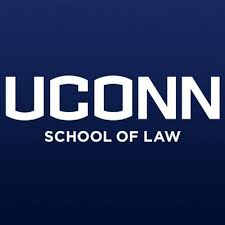How to apply

Throughout the admissions process, whether you are applying to the J.D., LL.M. or S.J.D. programs, admissions officers are available to answer questions and offer assistance as requested. In order to give you the most time to plan for your LL.M. program, the admissions committee considers applications on a rolling basis.
| Applicaton Deadlines: | Fall Semester Start | Spring Semester Start |
| Applicants with U.S residency | August 1 | December 1 |
| International applicants | June 15 | November 15 |
Application Eligibility
Applicants are required to hold or expect to receive a degree from an ABA-approved law school or from a recognized law faculty outside the United States before matriculating in the LL.M. program at UConn School of Law and must also meet the school’s English fluency standards.
There are a few exceptions to this policy for students in integrated law degree programs. For more information click here.
Exceptions:
|
Students in 4 or 5-year first degree in law may attend in 4th or 5th year |
|
Students in integrated masters/Ph.D. program may apply |
|
Students in 3-year Juris Master may attend LLM in final year after coursework is complete |
Applying through Law School Admissions Council (LSAC)
The first step in the application process is to create an LLM account on the LSAC website. Students should purchase the LLM Credential Assembly service (LLM CAS) to complete the assembly for transcripts and recommendations.
The following application documents can be assembled through LSAC:
- Application questionnaire;
- Upload a personal statement describing your educational background, reasons for enrolling in the LL.M. program, planned course of study, and career goals;
- Upload a writing sample in English;
- Upload final law school transcripts to LLM CAS from your degree-granting institution. The law degree should be the equivalent of the J.D. or LL.B. degree; correspondence course degrees will not be considered for admission;
- Submit two (2) letters of recommendation from either present or former law professors or supervisors of your legal work, which the recommender must upload electronically to LSAC;
- Submit your official TOEFL/IELTS/PTE test score, if applicable (our university code is 3915), as described in our Language Proficiency Policy; and
- Pay the application fee in the amount of $75 USD through LSAC.
Proof of English Language Proficiency
International applicants to UConn Law's LLM programs must provide proof of English proficiency or demonstrate qualification for an exemption from this requirement. Applicants may take the TOEFL, IELTS or PTE exam. UConn Law accepts a range of scores from TOEFL 80 or above, ITELS 6.0 or above and PTE of 60 or above.
There are also some exemptions to the language policy which students can access by clicking here.
Goals of Admissions Committee
Each year the admissions committee reviews files to consider the academic performance, intellectual curiosity and professional experience of each applicant. The committee takes a holistic approach to each applicant reflecting on the individual strengths each student will bring to the program and how the program will benefit each student. The work experience, career and academic achievements, public service and educational goals are all factors that demonstrate potential leadership and life experience that will be enhanced through a UConn Law LLM program.
Our goal is to train attorneys at the highest level of professional excellence so while students are building legal expertise, they are also making connections that will advance their careers.
LLM Programs

With four LLM programs and seven certificate programs designed specifically in areas of institutional strength, students have the opportunity to choose the program that best fits their needs.
Each LLM program is designed to create an individualized academic plan to meet the students’ needs while also developing professional opportunities for personal growth.
UConn Law’s LLM programs are flexible, affordable and each contains unique academic identifies. Our Insurance Law LLM is one of a kind with the largest insurance curriculum in a city that headquarters some of the largest global insurance companies. There are also a limited number of distance learning spots in the insurance LLM program.
The LL.M in Human Rights & Social Justice provides a unique opportunity to pursue integrated international and domestic aspects of social justice lawyering. Exploring both business, non-profit and public policy arenas, students can take courses at the law school, the UConn School of Social Work in downtown Hartford or the Human Rights Institute at the Storrs campus.
In the Energy & Environmental Law LLM, students have unique opportunities in clinics and field placement programs. Students can move beyond the classroom working in state agencies, law firms, energy and environmental corporations or regulated utilities. Offering students the opportunity to use their foundational knowledge in a practice setting.
Students interested in pursuing a career in academia, government service or the judiciary may choose to continue toe the SJD program. Students enrolled in the SJD program must have the ability to conduct sustained and original academic or professional research at a high intellectual level, culminating in the submission of a doctoral dissertation. Strong preference is given to the Law School’s own LLM candidates.
JD Program
LLM students choosing to pursue a JD after graduation may utilize the LLM to JD admissions process. Students who meet the admissions requirements of this program will be able to utilize advanced standing for certain credits earned in the LLLM program.
UConn’s Unique Academic Enrichment Programs

Regardless of which program a UConn Law student chooses to enroll, there are a number of opportunities that allow students to create a flexible and customized curriculum.
Certificates: There are seven unique certificates in Corporate & Regulatory Compliance, Energy and Environmental Law, Financial Services Regulation, Human Rights, Intellectual Property, Tax Studies and Foundational Certificates in U.S. Law.
Clinics and Field Placements: UConn Law has been a leader in experiential education since its founding in the 1920’s. Currently, UConn Law offers over 15 clinics and field placements opportunities in over government agencies, non-profits, private law firms, in-house legal departments, federal and state chambers and numerous administrative agencies. Students work with individualized counselors to find a position that meets their academic needs and offer’s a suitable practice-based learning opportunity.
LLM+: Students interested in adding a third semester to the LLM program can choose to apply for the LLM+ program which allows for a full-time for-credit field placement opportunity in the final semester. Students complete 21 credits in the first two semesters and complete 9 credits in a third semester in a placement in Washington, DC, Connecticut or some other preferred location so long as an appropriate placement is confirmed.
U.S. Legal Studies
Add new potential to a foreign law degree by developing your overall U.S. legal expertise. Create your own curriculum or choose from one of six certificates and qualify to sit for the bar in select U.S. jurisdictions. This customized LLM is for students who have earned a law degree outside the United States.Read more about the U.S. Legal Studies LLM program »
Energy and Environmental Law
Develop expertise in global and U.S. energy and environmental law, climate change policy, land use law or the world of renewable energy. Engage in a customizable combination of coursework, potential real-world externships, individual projects with professors, or development of written scholarship under the guidance of our faculty.Read more about the Energy and Environmental Law LLM program »
Human Rights and Social Justice
In keeping with the growing trend of integrating international and domestic human rights into the realms of business, non-profit agencies, and public policy, this program will provide you with an opportunity for in-depth study of the international human rights and U.S. civil rights movements.Read more about the Human Rights and Social Justice LLM program »
Insurance Law
Study with the nation's most sophisticated insurance law experts in Hartford, the insurance capital of the United States. Draw on the resources of the law school's Insurance Law Center, the preeminent academic center for insurance law and risk regulations.Read more about the Insurance Law LLM program »



